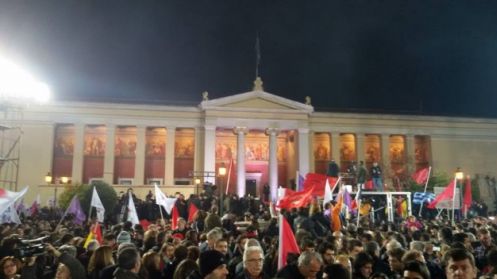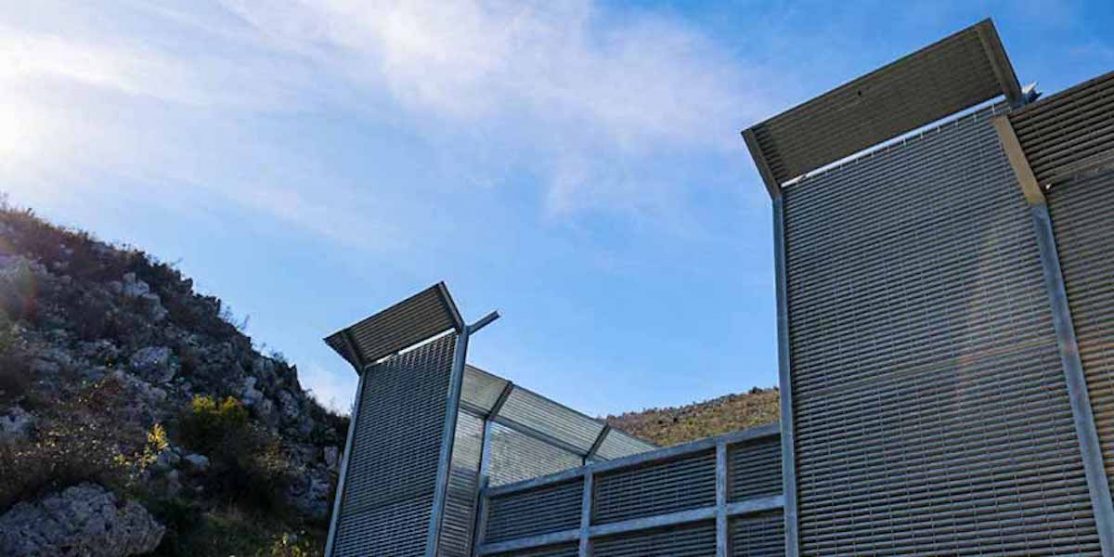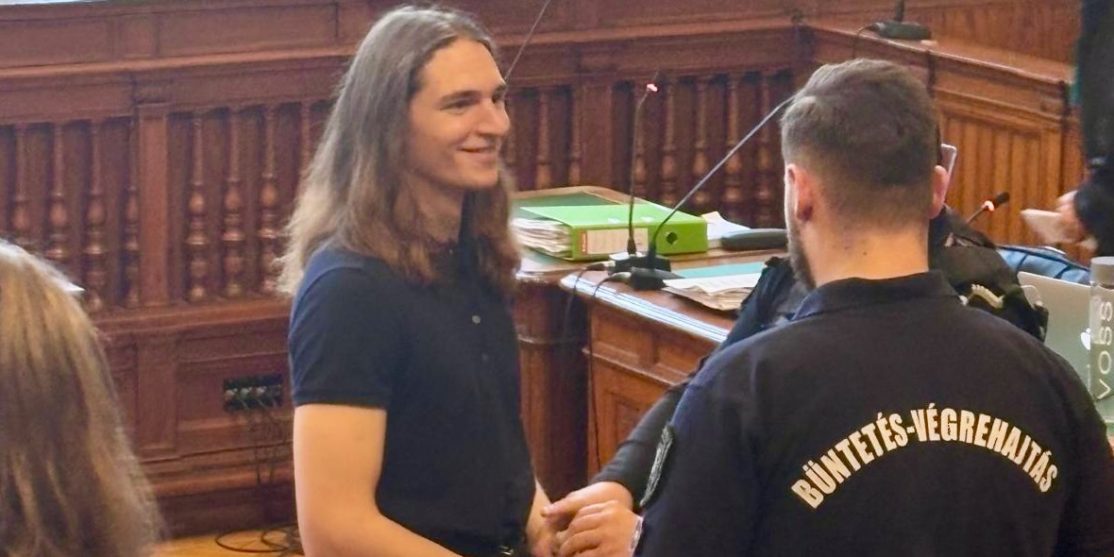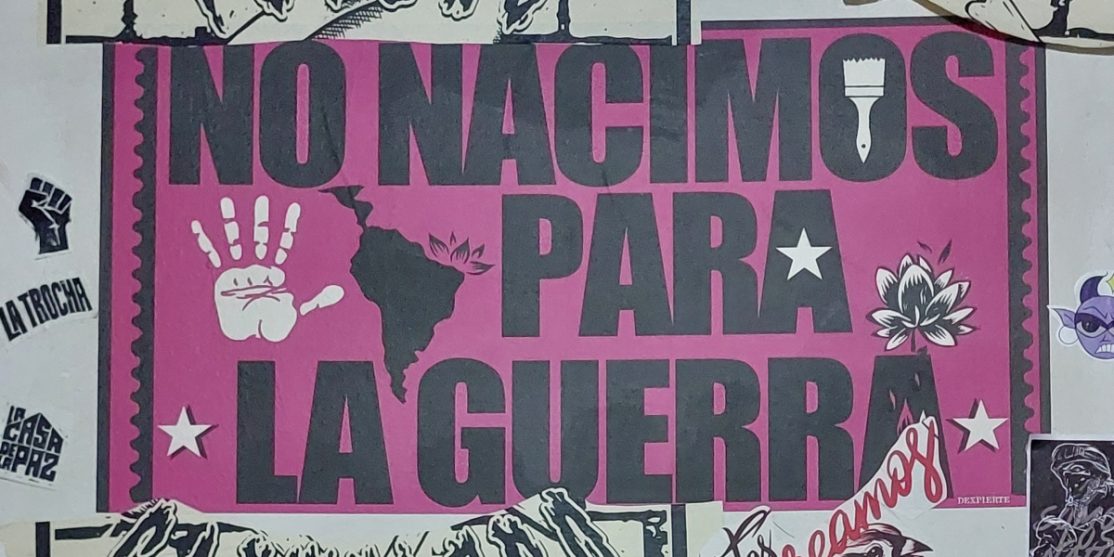EUROPA
Q&A on the Greek elections’ outcome

This Q&A is an attempt to respond to questions raised by non-Greek friends on the outcome of the 2015 elections. Here the translation to italian by Atene calling.
1 – Why did SYRIZA go into an alliance with populist right-wing ANEL?
There was no other option. Or, better put, the other options were even worse. Given that Tsipras had dismissed a potential alliance with formerly governing New Democracy (ND) and PASOK, and given that the communist KKE had ruled out offering any sort of support to a left-wing government, the two parties left to choose from were ANEL (Independent Greeks), a right-wing populist party, fiercely anti-troika but completely unreliable, apart from the fact that they are truly fucking right-wing in socio-political issues and POTAMI (“the River”), a post-politics, neo-liberal, pseudo-party financed by media giants, which is pro-troika. Despite the dangers, the most reasonable decision to take was to ally with ANEL. Because at least in what concerns the negotiations with Brussels, it will prove difficult (albeit, not impossible) for the creditors to use ANEL as a “pro-troika flank”, backstabbing the process. Whilst, with regard the bills concerning progressive socio-political reforms, which ANEL will surely not vote, finding a couple of other parties’ parliamentarians, in order to get the bills passed, could prove relatively easy. Relatively. As is obvious, the risks involved in this sinister alliance, are tremendous.
2- Why didn’t SYRIZA go to a second round of elections, asking the necessary parliamentary majority to overcome the impasse?
This would be a very, very risky move. There is a strong chance that SYRIZA would actually lose from such a move, rather than profit from a “strong dilemma” electoral campaign. The explanation is dual. On the one hand, the discourse that “the country cannot be left without a government, due to its economic situation” is overwhelmingly strong among the vast majority of the electorate. Second, due to constitutional provisions, SYRIZA would be held responsible of delivering to the third party, the neo-nazi Golden Dawn, the mandate to form a government. This would dramatically increase the neo-nazis’ legitimization. Also, keep in mind that Greece has no tradition of minority governments. In this extremely polarized political setting, a minority government would not last more than a month or so – and we ‘d return to the initial point, the SYRIZA government having suffered a terrible defeat in its first steps.
3 – Why did the neo-nazis perform well (6,2%) despite that their leadership is in jail?
Golden Dawn was invisible during the electoral campaign. “Invisible”, though, does not mean nonexistent. They did a low-cost, grassroots electoral campaign, utilizing two socio-political elements which are of the utmost importance, in order to understand their rise and persistence:
a) The tremendously bad performance of the main right-wing institutional party, ND. In the post-1974 period, the extreme-right part of the electorate was efficiently “hidden” among ND voters. The dissolution of the ND constituency during the crisis years, “liberated” the fascists. They first flocked into LAOS and (when LAOS collapsed due to its participation in a pro-troika government) then to GD.
b) In recent years, the institutional Greek parties (even the centrist PASOK) systematically normalized elements of the fascist discourse, through their anti-migrant, anti-decadence, anti-social pathogenesis arguments and policies. As is well known in Political Science, extreme-right arguments work well for institutional parties, until the point that an “original representative” of this sort of discourse emerges. This was the case with GD. New Democracy played its part in these specific elections, as its leadership idea was that the only way to gather back the pieces of the fragmented right-wing electorate is by pushing to the extreme their already particularly conservative analysis and argumentation. Of course, as one would expect, ND suffered a terrible defeat, whilst the “original representative” GD profited.
Golden Dawn is now a well-established party, socially rooted in the police and armed forces, as well as impoverished workers and former petit-bourgeoisie in cities and the countryside. Unless a massive restructuring of the right side of the political spectrum occurs, they will be present in the political map, despite the fact that if its leaders’ trial goes well (i.e. they get convicted of criminal association), this might be the last time they appeared in elections under the GD title and banner.
4 – Why doesn’t KKE support the SYRIZA government? Isn’t this a suicidal move?
In order to understand the communist party’s stance during the 2015 elections, one has to look at its recent past. KKE is a stalinist, conservative, nationalist party. During the crisis years, they engaged in a low-profile opposition to troika and the Memorandum Governments, consistently refusing to engage with protests and mobilizations organized by anyone else than them. They are deeply sectarian, and absolutely negative towards even considering to renovate their action repertoire, slogans, aesthetics, arguments, party elite. They retained their forces (even gaining an extra 60.000 votes since 2012) by gathering left-wing voters, dissappointed with the SYRIZA’s opening to the center-left. The promise made to the former was that KKE will become the only left-wing parliamentary opposition to SYRIZA’s government. Therefore, their non-support does not constitute a suicide move. Contrariwise, it is an almost mandatory one, in order to retain their constituency in the mid-term. The party’s strategic dead-end will become visible, though, if the new government manages to make a decent performance.
Published on the blog of Markos Vogiatzoglou




